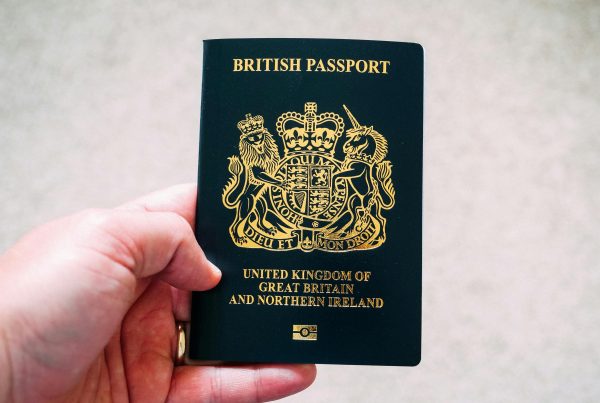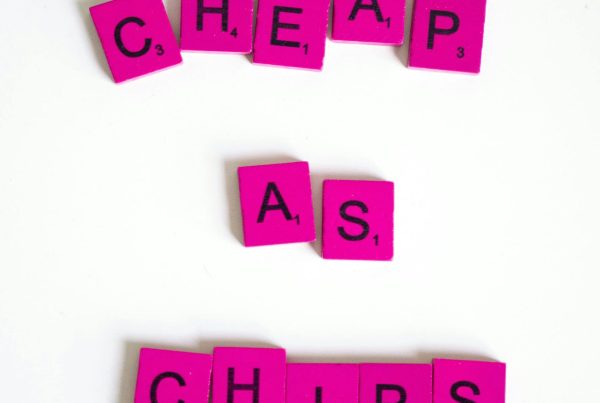Updated 9.02am Mon 8 June 2020
The Government have released a lot of information over the past week about how they intend to support businesses and self-employed people during the Coronavirus pandemic. Some details about how and when the cash is going to be available are unclear, but we’ve put together a summary of what’s planned and how we can help you along the way.
Will my business insurance cover Coronavirus?
If you haven’t already, check your business insurance policy. If there’s an interruption clause that mentions you’re covered for a “notifiable human disease” and the policy doesn’t list out specific diseases, then you should be covered to make a claim. If your policy does list out diseases then the insurance company will more than likely reject any claims, but it may be worth calling them anyway.
VAT
VAT payments due between 20 March and 30 Jun 2020 don’t have to be paid until 5 Apr 2021. If you pay by direct debit, you can cancel the direct debit with your bank. This can be done easily via most banking apps, online banking, by calling the bank or visiting a branch.
31 July personal tax payments on account
If you’re due to pay personal tax by the 31 Jul 2020, you can leave payment until 31 Jan 2021. No penalties or interest will be charged by HMRC.
Outstanding taxes, PAYE & corporation tax
For any outstanding tax liabilities that you can’t afford to pay or any PAYE or Corporation tax bills due within the next 14 days, HMRC have set up a dedicated helpline to arrange some more time to pay or set up a payment plan. The number is 0800 0159 559. The line is open Mon-Fri 8am to 4pm and will probably be least busy before 9am.
Business rates holiday
For the next tax year (6 Apr 2020 – 5 Apr 2021) there’ll be no business rates for businesses based in England in the retail, leisure or hospitality sectors to pay. Don’t worry if you’ve already been billed; a new bill with nil rates will be issued.
Can my business get a cash grant?
Some businesses are eligible for a non-repayable cash grant. Visit our Does my business qualify for a cash grant? page to find out whether you qualify and how to get the money.
Top-up to local business grant funds scheme
A discretionary fund has been set up to accommodate certain small businesses previously outside the scope of the business grant funds scheme. More details to be found here:
Can I get cash to pay employees who aren’t working?
To help employers who have been affected by Coronavirus, a scheme is being set up whereby employers can reclaim up to 80% of wage costs up to a cap of £2,500 a month per employee, plus the associated Employer NI and pensions contributions.
You need to get the employee’s agreement to accept the status of “furloughed worker” and to accept 80% of their usual pay while furloughed (laid off). Alternatively you can continue to pay them their usual wage and just claim back 80%. This scheme will run until October, However, from the end of July the scheme would see greater flexibility to support the transition back to work’, with employers currently using the scheme able to bring furloughed employees back part time.
Employers will be expected to make a bigger contribution to salaries in a bid to ease the burden on the Government, details on this will be announced later in May.
To qualify, the employee must have been employed on 28th February 2020 and must not work at all while furloughed, and your PAYE scheme must have been set up with HMRC before 28th February 2020.
If you’re a client and you need to furlough staff, please give us a call. We’ll tell you what you need to do.
It looks like directors with a wage can be classed as furloughed workers provided they aren’t working. We’re seeking further guidance on this and will let you know of any developments.
Claims can be backdated to 1st March and the system for repayment is due to be in place by the end of April. Here’s the government’s full guidance on the Job Retention Scheme.
Can I get help with sick pay if my staff have Coronavirus?
If any of your employees are off sick with Coronavirus or self-isolate, they’re entitled to sick pay from day one of their absence (£94 per week). The employee’s average wage for the past 8 weeks needs to be more than £118 a week. If wages are below this, they need to claim their sick pay direct from the government via universal credit. The Government will reimburse the employer the statutory sick pay for up to 14 days. Employees don’t need a fit/sick note, but you should keep a record of when they were off.
The government are currently setting up a system for employers to reclaim the first 2 weeks of SSP, which should be ready end of April early May.
If your a client and have staff who are self-isolating or off sick with Coronavirus, please contact us.
NB This sick pay cover applies to every UK business with fewer than 250 employees.
What help is there for self-employed people?
A system is currently under construction to help self-employed sole traders and partnerships.
The money won’t be paid out until early June and will be based on profits for 16/17, 17/18 and 18/19. If you only have one or 2 years available, then those details will be used. This scheme is being extended. You’ll be able to make a claim for a second and final grant in August 2020.If you’re eligible the second and final grant will be a taxable grant worth 70% of your average monthly trading profits, paid out in a single instalment covering a further 3 months’ worth of profits, and capped at £6,570 in total.
These figures will be used to calculate a monthly average and if you qualify, you’ll receive a taxable grant for 80% of the monthly amount up to a maximum of £2,500, for the next 3 months. This may be extended if needed.
For example:
Profits for 16/17 (£20,000), 17/18 (£15,000) and 18/19 (£20,000).
Total for 3 years = £55,000, divided by 36 months = £1,527 average per month.
Entitlement per month will be £1,222.
If you’ve been self-employed since 18/19, with £20,000 profits, average would be £20,000/12 month = £1,666.
Entitlement per month will be £1,333.
To qualify for the grant the following conditions must be met:
- You submitted an 18/19 tax return for self-employment income
- You are due to submit a return for 19/20 for self-employment
- You are intending to continue trading in 20/21
- You’ve lost trading profits due to corona virus
- Profits of less than £50,000
- Your profits from self-employment make up more than half of your income*
* According to the official guidance, you meet this condition if EITHER
1. Your self-employed profits are over 50% of your total income on your 2019 tax return OR
2. Your total self-employed profits on your 2017, 2018 and 2019 tax returns were over 50% of your total income for those years.
If you only recently started as self-employed or trade via a limited company, you will not be entitled to make a claim for this grant. The only help available for newly self employed people is to make a claim for universal credit or call 0800 328 5644.
If you qualify for the cash grant, you can also put a universal credit claim in to get something up to when you receive the grant.
Here’s a link to the full government guidance on self-employed income support.
Click here to start your claim
As a company director you may be able to be furloughed and claim 80% of your salary under the Corona Virus Job Retention Scheme. See the “Cash for businesses to pay employees who aren’t working” above.
Universal credit is also an option for directors.
Coronavirus Business Interruption Loans (CBIL)
The Chancellor has announced today the extension of the current Coronavirus Business Interruption Loan Scheme (CBILS) to all viable small businesses affected by COVID-19, in a move aimed at combatting fears that small and medium-sized businesses may become insolvent accessing emergency funds. The government announced plans to help businesses via new loans, with no interest for the first 12 months and 80% backed by the government. This doesn’t mean the government will pay 80% of the loan back if things go wrong with your business. The lender will still come after you for everything they can.
New rules will prevent lenders from requesting personal guarantees for loans under £250,000, and the government has also stated that it will make operational changes to speed up lending approvals and continue to cover the first twelve months of interest and fees.
Loan Types and Rates
- Term Loans and Asset finance up to 6 years
- Invoice financing & Overdrafts up to 3 years
- Typical Rates are between 3.5% to 5%
- Capital Repayment holidays for 12 months
- No Interest charged in the first year. Government to cover the fees
- Personal Guarantees only 20% of balance if loan is greater than £250,000
From current news, the banks are being a bit reluctant to issue these loans and the application process could take around 4-6 weeks.
Another option if you need help with short term cash flow is, a lot of banks are offering loans of up to £25,000, which can be accessed via your mobile app or online banking, so that’s a good place to start before the CBIL. This will be a normal loan at commercial rates.
If you need any help, we’re partnered with funding experts (Capitalise) who can search the market for a solution. It may be access to a CBIL or a loan by normal means, but they’ll search the market for the best deal for you. Get in touch with us for more details.
It may be a good idea to apply for a loan even if you don’t think you need it at this moment is time, as it may be best to have it rather than not if this lockdown gets extended.
What else can I do?
In some cases, it may be possible to tweak your business model temporarily. For example, restaurants which are seeing a downturn in customers and bookings may start offering a delivery service, which could be more profitable if more people self-isolate. Hairdressers could offer to go to clients’ homes rather than having them come to the salon, where risk of infection would be higher.
Encouraging employees to follow the government’s advice can limit sickness absence, and making provisions for employees to work from home where possible would also be wise.
What measures are My Accountancy Hub taking?
In addition to following official advice and taking sensible precautions, we’ve set up a Coronavirus Updates page to keep our clients informed of what’s going on at our office.






